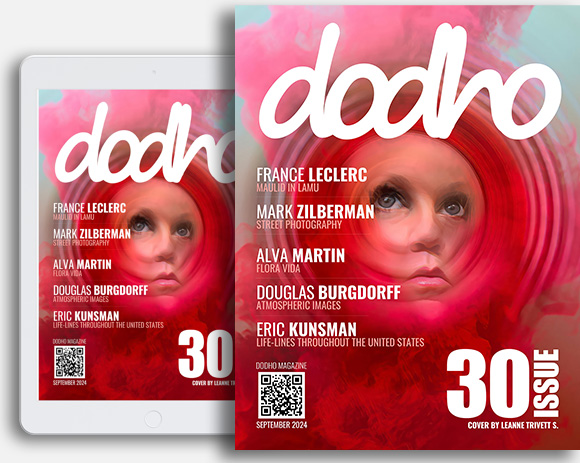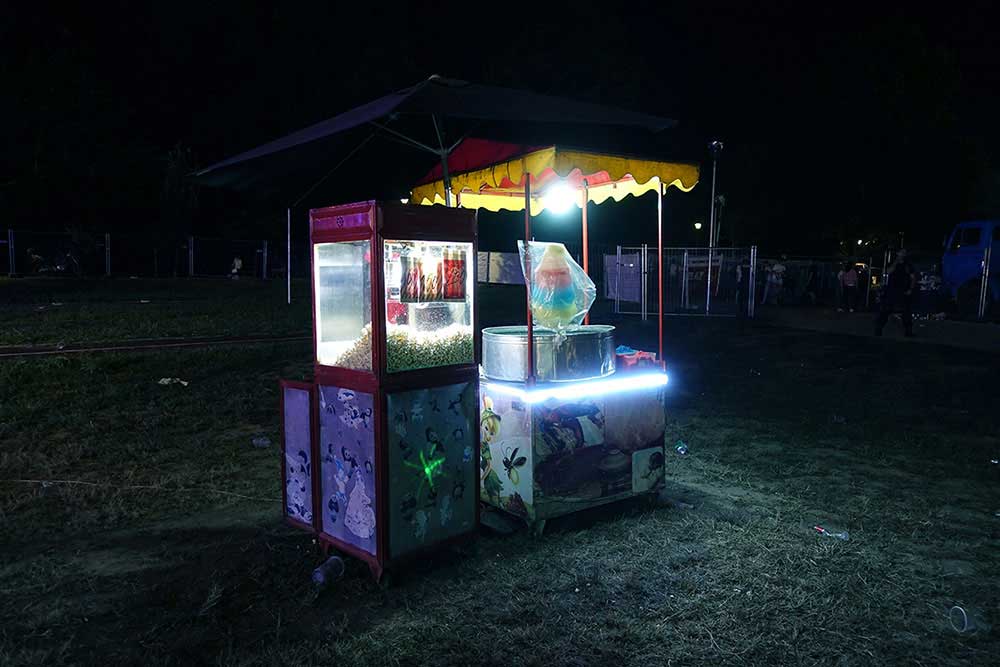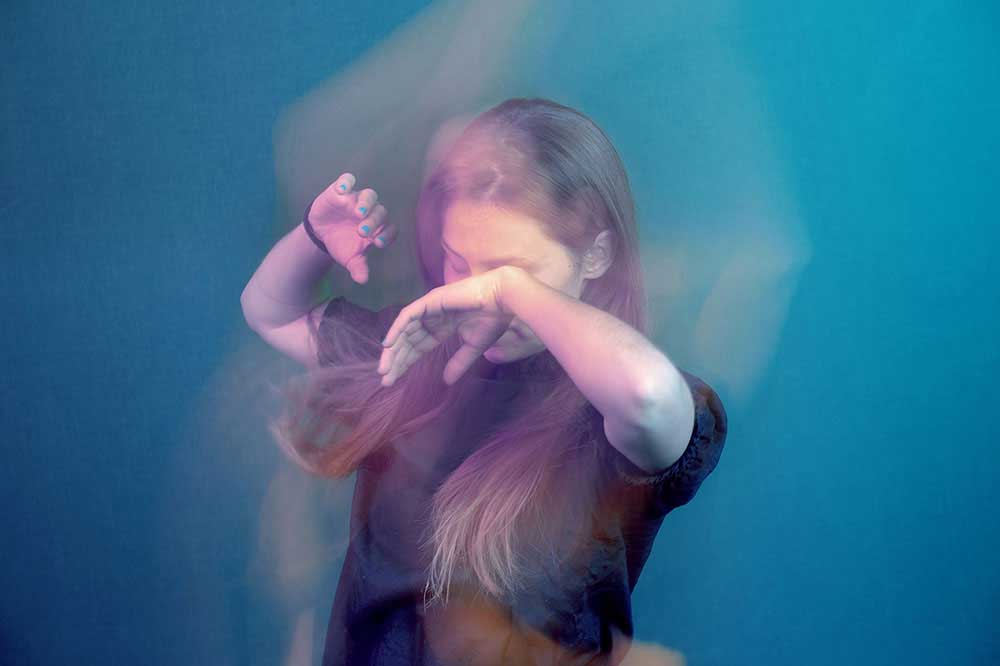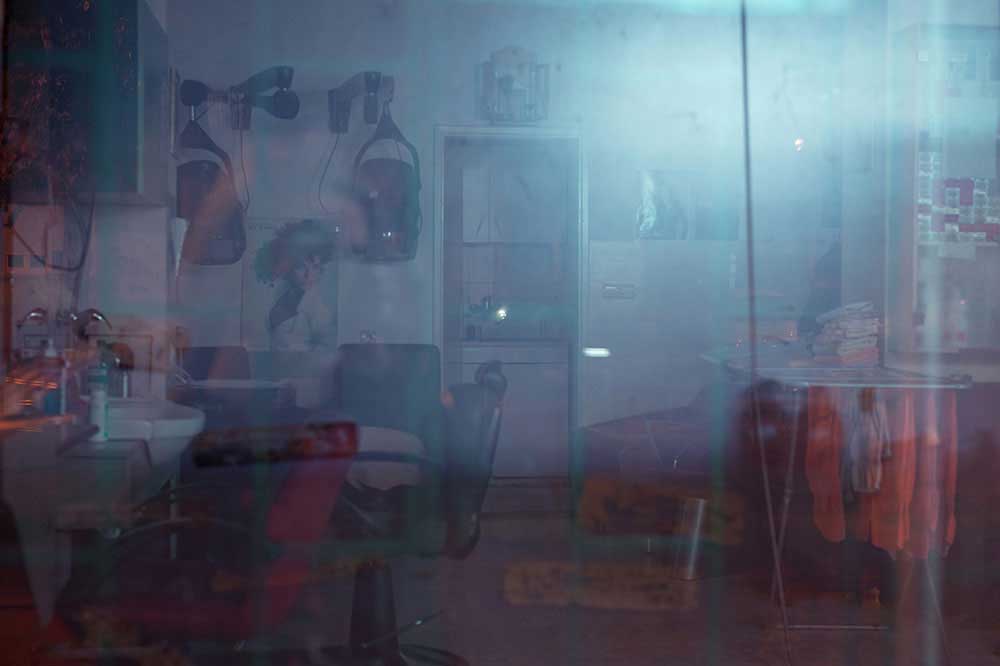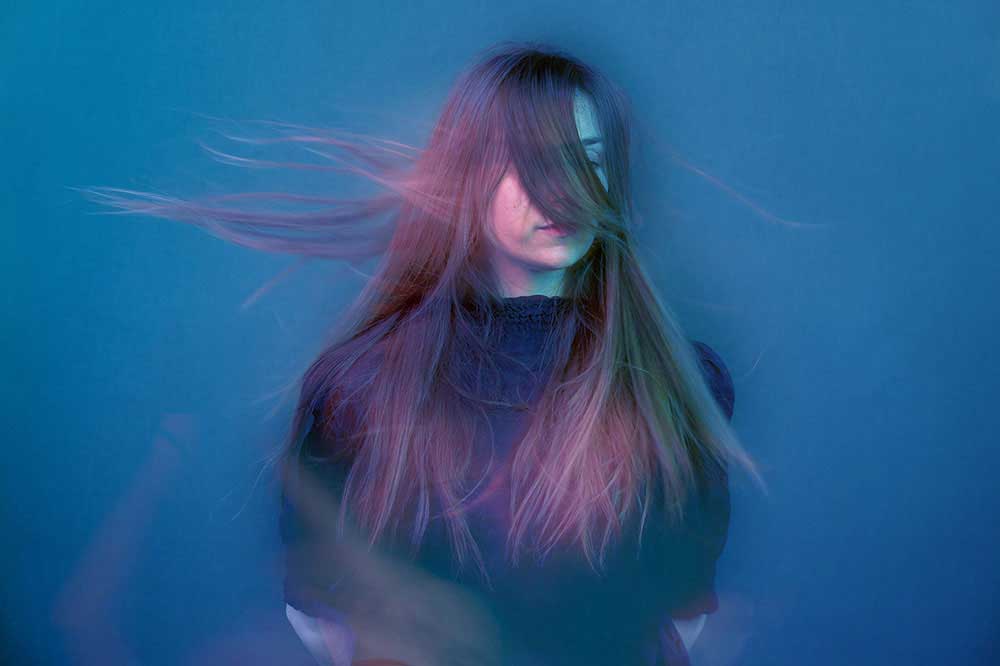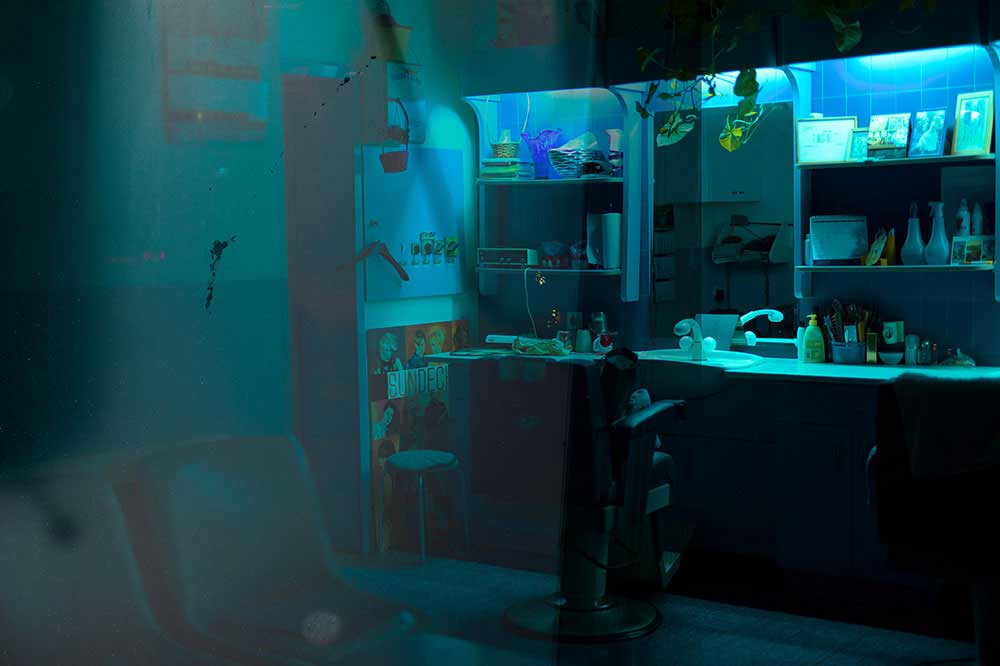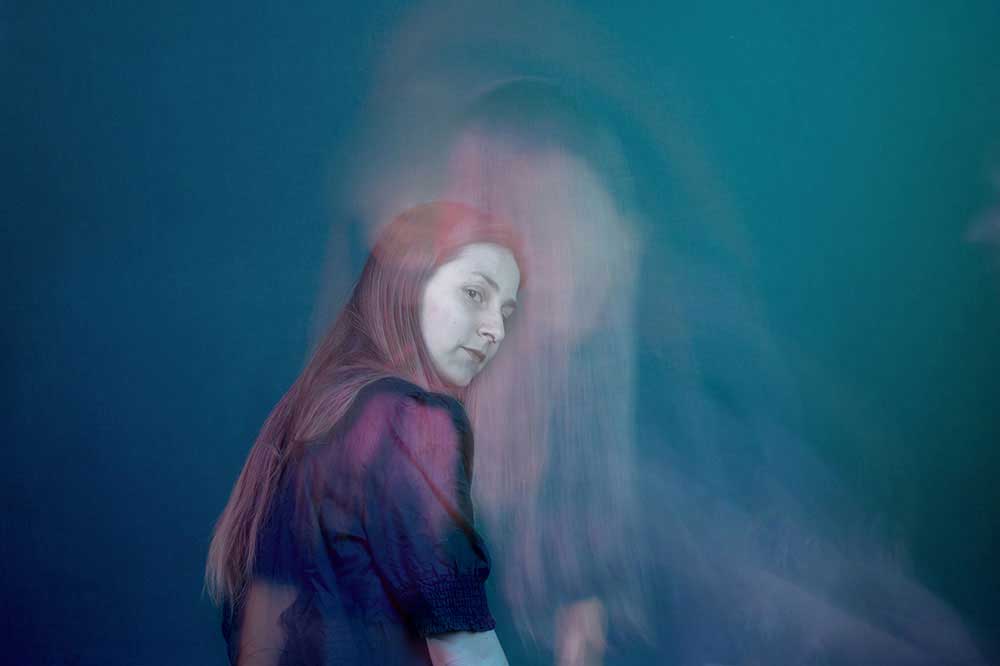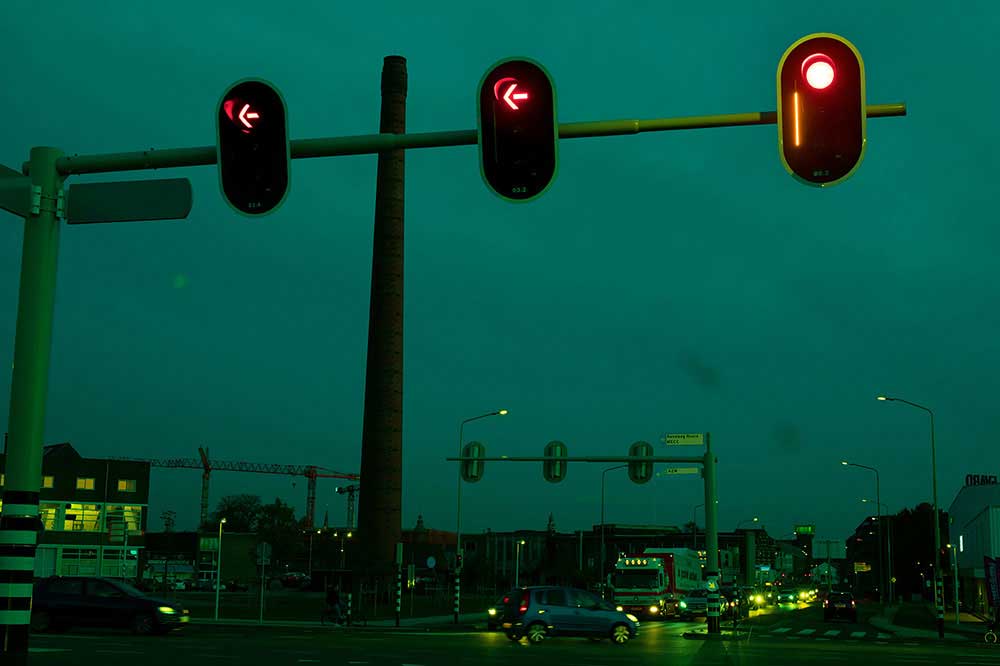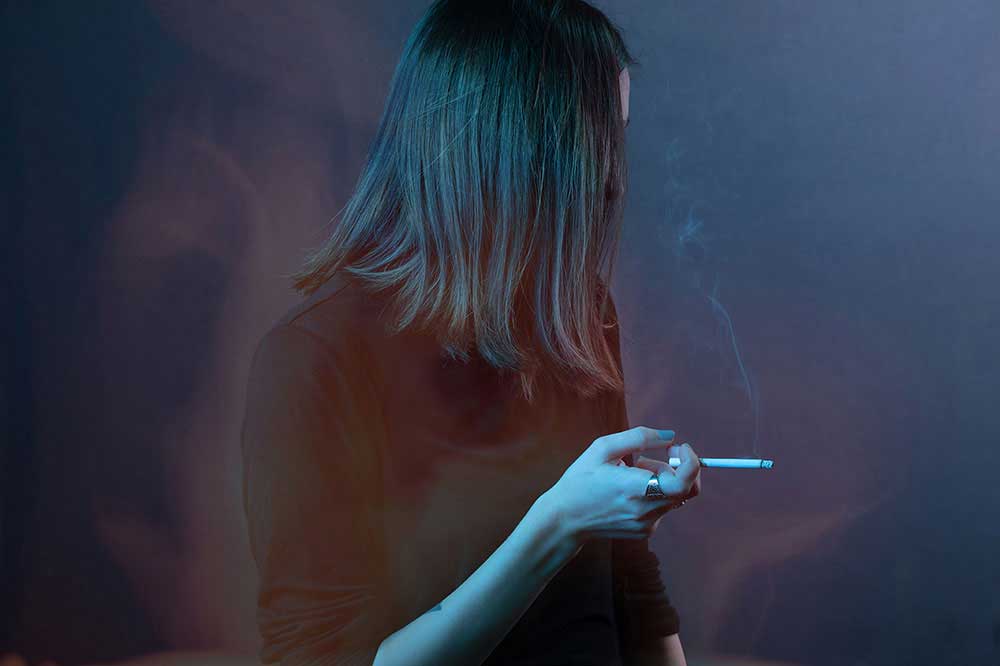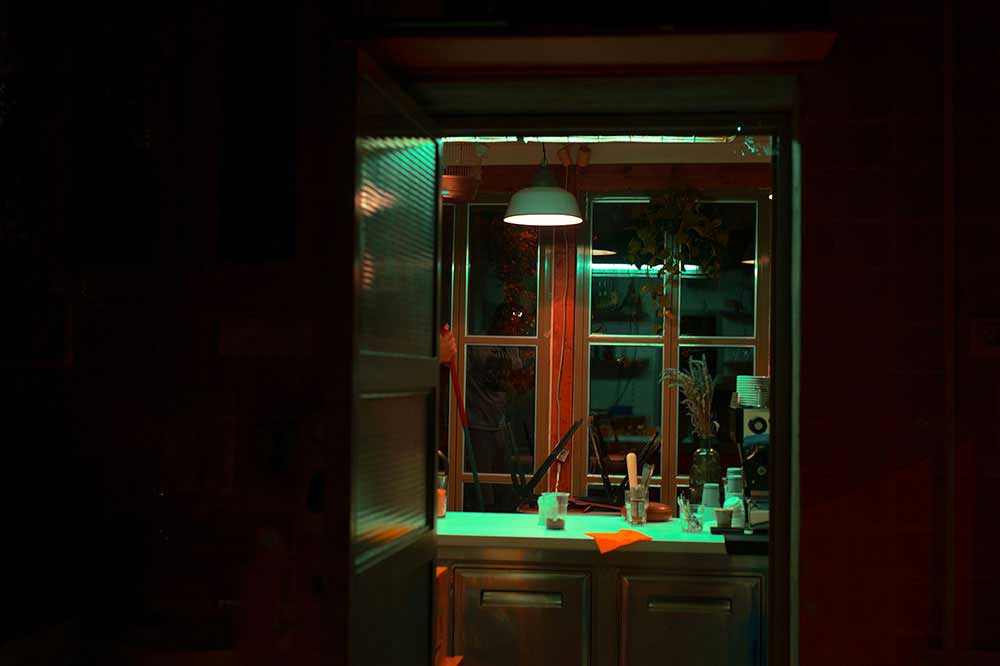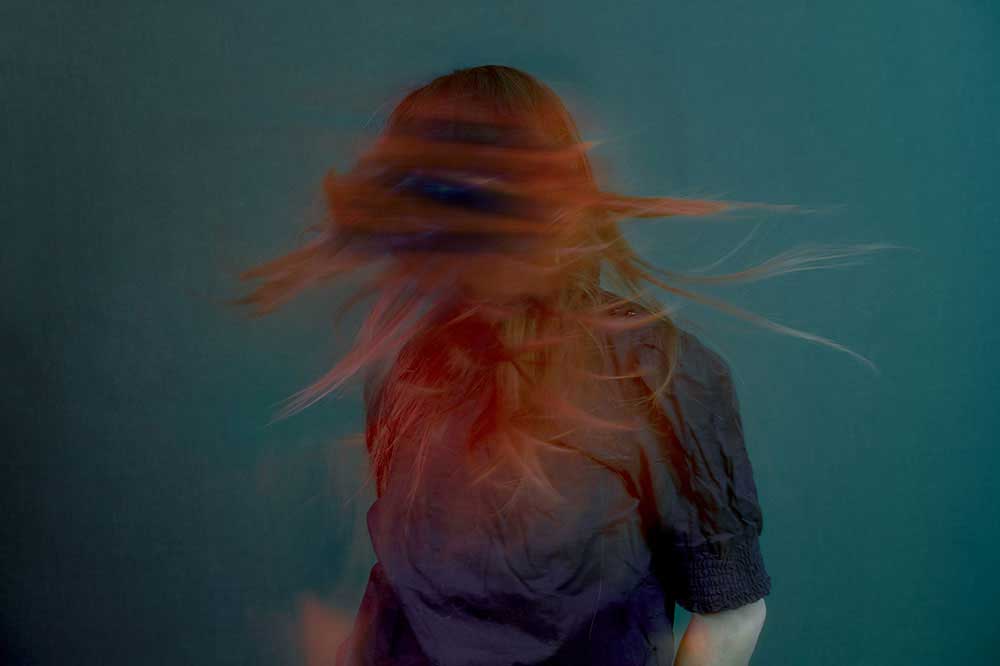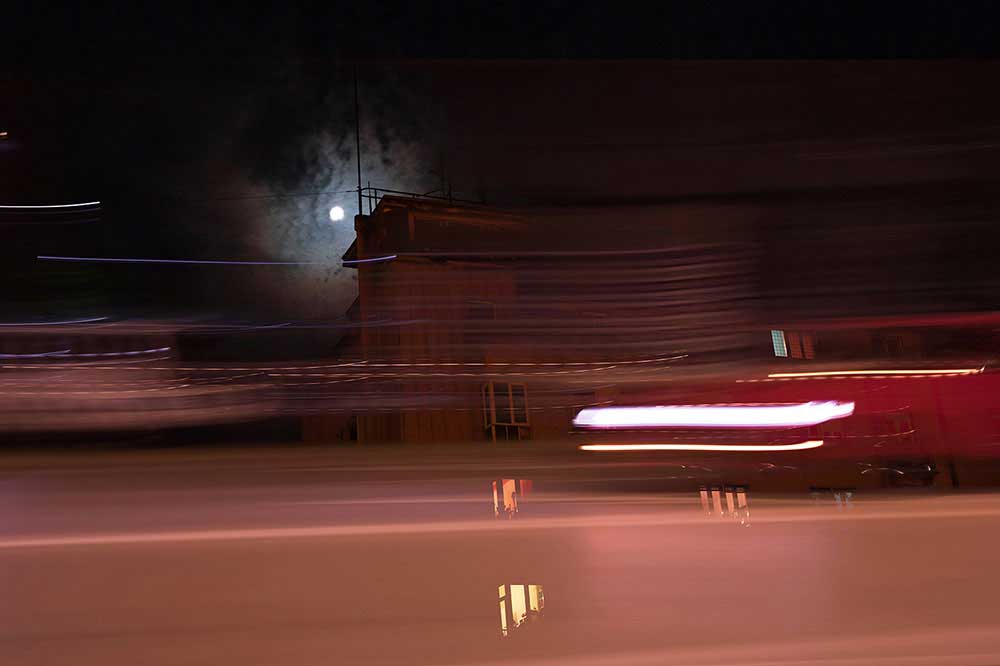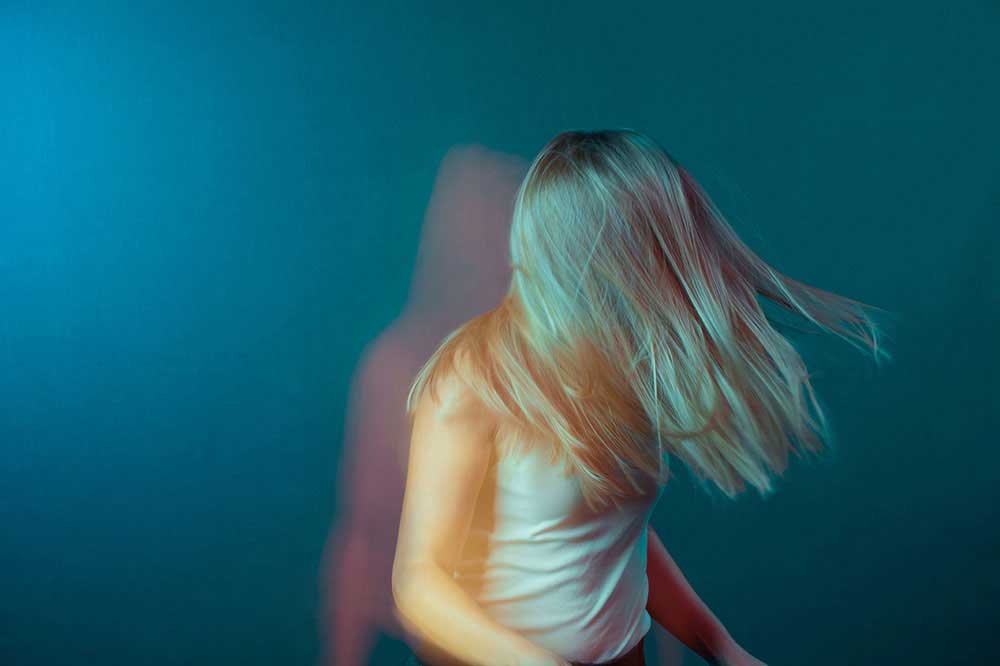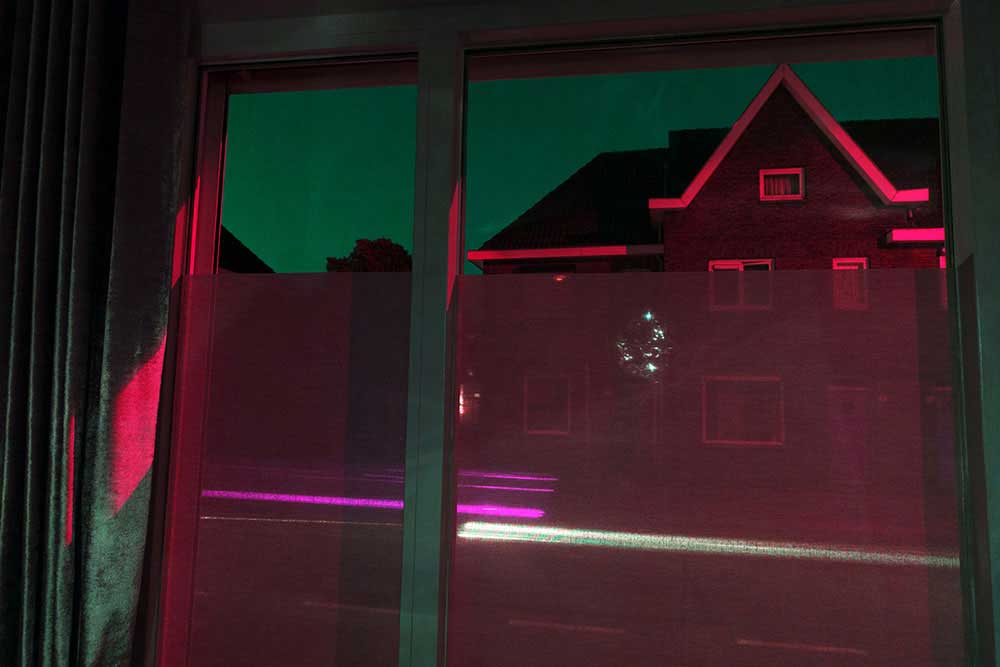For Ljubica Denkovic, photography is a space that varies meanings, making them stranger, questioning the known, instilling new senses, playing with aesthetic categories.
At the same time, such a creative approach enforces a cognitive frame flexibility and an expanded expectations horizon upon the spectator. The proof that nothing is neither obvious nor implied is in her darkness, that not composed of blackness, but rather a spectrum of blue and purple nuances.
A Guide Through the Darkness
Denkovic is able to see emotions as entities in space and show them in photographs, not refraining from becoming plagued by someone’s emotional state or to meet her own prior self in someone else. She builds a seemingly different world, a movie scene or a surreal sight within the emotional field of collective loneliness. Her photographic method over-accentuates and intensifies reality to such an extent that it ends making us ready to embrace it. The resulting photographs are a guide through the dark landscapes of the self, showing us external locations and discarded emotions in space, encouraging us to face the neglected internal domains.
The portraits may be interpreted as a kind of factographic record of the altered perception experience, as, ultimately, a visual representation of the Alice in Wonderland syndrome. The Alice syndrome is characterized by the altered spatial perception, loosing orientation in time, distorted body image perception, movement illusion, disorientation. All these symptoms have been remodelled into photographic elements, their synergy placing us outwards, into the unspecified nighttime space as the meeting place with the magical. Such a presumption dims the borderline of the supranatural and real, questioning at the same time distortion as a feature of perception, the senses and/or the body. How far is the reach of our mental inclination to declare anything not matching the standard and stagnant experience a disorder? Or to negate that what we cannot understand?


